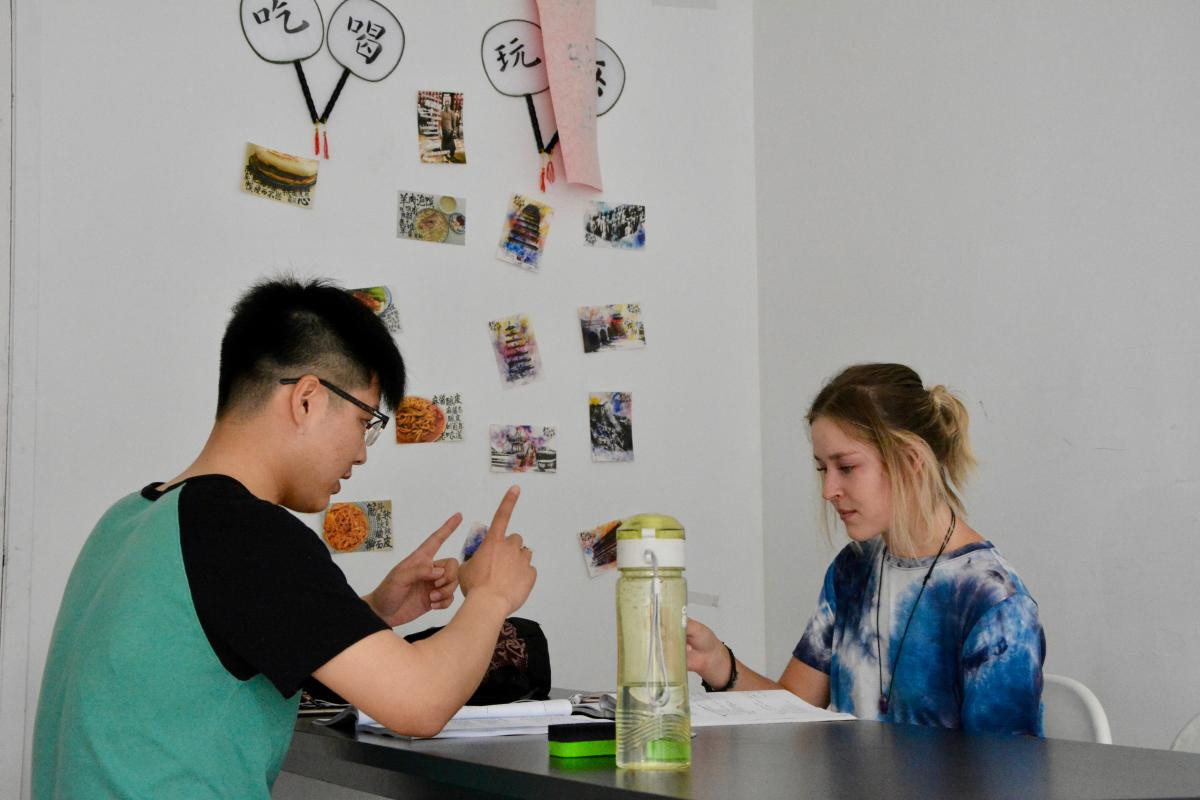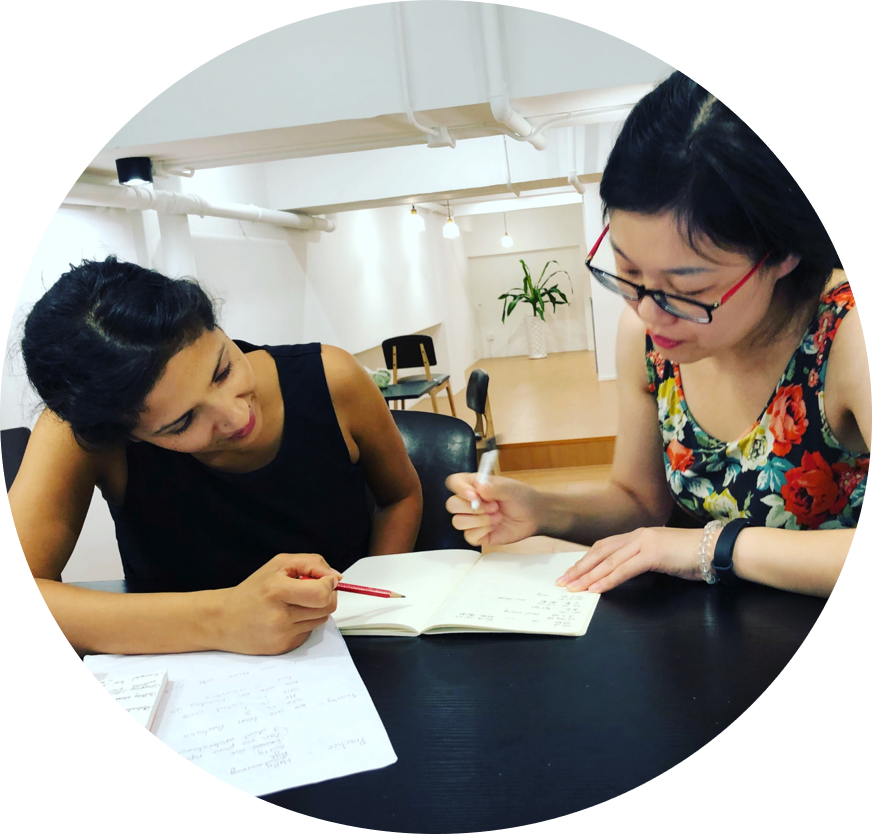Guest post provided by Hugh Grigg, East Asia Student.
Language classes can be a very valuable tool in your language learning arsenal. Like any good tool, though, you've got to know how to use them. You know that you need to choose a good language school and put the effort in. But how can you take it further, and really squeeze the most out of the classes?
1. Make mistakes
If you only do one thing from this list, make it this one. You've got to make mistakes. It's tempting to think that your goal in learning a language is to avoid mistakes and make as few of them as possible. This approach is actually unhelpful. Turn it on its head, and go out of your way to make as many mistakes as possible, as often as possible. Obviously this doesn't mean you should intentionally make mistakes that you already know are wrong. It means you should be speaking so much, and stretching yourself so far, that you can't help but make a lot of mistakes.
It's all about giving it a go and recognising that making mistakes is a normal and necessary part of the process. A cool way to think of this is that everyone has ten thousand mistakes in them, and they need to get all of these out before they can speak a language well. Looking at it that way, each time you make a mistake, you know that you're one step further along the way.
2. Use what you learn as soon as possible
Part of being willing to make mistakes is being willing to use the stuff you learn as soon as possible. It'll be hard, and you'll get it wrong, but you'll learn fast because you're working at full capacity. It forces you to think hard about the material, and we know that the more you think about material, the more likely you are to remember it. You'll never be perfect, so start speaking as soon as possible. Knowing that you're trying to make mistakes really empowers you to just give it a go and put the material to use straight away.
 As soon as you learn something, be on the look out for opportunities to use it, even if they're a stretch. This is especially true in class, where everyone in the room knows you're trying to learn, and understands if what you say seems a little contrived. You can also apply this principle outside the classroom. You're not totally sure how to use your new knowledge, and the fastest way to find out is to try it and see what happens! It's a little nerve-wracking, but that's exactly what makes it so effective. You'll remember the material so much more easily because you went through this experience with it. What's the worst that can happen? Once you know that making mistakes is a good thing, you know that it doesn't matter if you say something a bit silly.
As soon as you learn something, be on the look out for opportunities to use it, even if they're a stretch. This is especially true in class, where everyone in the room knows you're trying to learn, and understands if what you say seems a little contrived. You can also apply this principle outside the classroom. You're not totally sure how to use your new knowledge, and the fastest way to find out is to try it and see what happens! It's a little nerve-wracking, but that's exactly what makes it so effective. You'll remember the material so much more easily because you went through this experience with it. What's the worst that can happen? Once you know that making mistakes is a good thing, you know that it doesn't matter if you say something a bit silly.
Finally, you can actually start using this principle without saying a single word. Mentally rehearse new words and sentences during class and afterwards. Imagine where and how you might use new grammar structures and vocabulary, and how that conversation might pan out. You know you're doing it right when you can't get the words and phrases out of your head, and they actually start to bug you!
3. Ask for what you want
We're lucky to have an array of incredible resources today, from software teaching systems to electronic dictionaries to e-courses, with more on the way. But face-to-face teaching still has an advantage over all of these. It's by far the most customisable learning method.
Your teacher is an expert, and that means they're happy to adapt and tailor the learning experience for you. If there's a topic you'd like to be able to talk about, ask. If there's a learning method you'd like to try, ask. If you have a problem that you can't tackle on your own, ask. It seems obvious, but a lot of people are very passive in language classes. By actively asking questions, making suggestions and requesting advice, you can adjust your classes and get so much more out of them. Doing this also makes life easier for your teacher, as they can get a better idea of your needs and address them more effectively.
4. Prepare (a little bit)
Good language classes aren't cheap. You're paying for a professional service, so it's important to put this precious time to the best use possible. You shouldn't be doing things in class that you could get done on your own - that's wasting valuable time with an expert! So when you're preparing, keep that principle in mind.
You're aiming to capitalise on class time, which is a finite resource. However, it's also possible to prepare 'too much'. If you prepare so much that the class doesn't keep you on your toes and you can just drift through it, that's also wasting time. It's a bad idea because it makes the classes dull, which drains your motivation. It's also bad because learning to think on your feet is really important when studying languages. Over-rehearsing makes you feel secure, but you become a much better language learner if you can think quickly and work cleverly with your limited vocabulary and grammar. Learning to do this equips you to approach any situation knowing that you can at least have a go at it, even if you've never rehearsed. This opens up a lot of fantastic learning opportunities for you (and makes you more confident in general!).
A good rule is to prepare enough that you can get through all of the material if you have your wits about you. You're not lost at sea, but neither are you lazing around on an ocean cruise.
5. Be your teacher's impressionist
When you're learning foreign languages, it's not enough to just try and produce the sounds. The best thing is actually to try and completely mimic native speakers, right down to their mannerisms. You're not being creepy - it's just the fastest way to start sounding native, and that brings loads of benefits with it.
 When you're speaking your target language, try to pretend that you're an actual native speaker you know, and that you're doing an impression of them. After a while, you'll find you have a voice in your mind that's a nice mix of you and a native speaker. You really can develop this to the point where you can read something out in something pretty close to a native accent (or sound native on the phone). Then take it a step further and look native when you speak. This not only encourages other people to speak to you in the language, but also encourages them to speak to you in a natural way, which you'll benefit from a lot.
When you're speaking your target language, try to pretend that you're an actual native speaker you know, and that you're doing an impression of them. After a while, you'll find you have a voice in your mind that's a nice mix of you and a native speaker. You really can develop this to the point where you can read something out in something pretty close to a native accent (or sound native on the phone). Then take it a step further and look native when you speak. This not only encourages other people to speak to you in the language, but also encourages them to speak to you in a natural way, which you'll benefit from a lot.
Over to you
What tips do you have for getting the most out of language classes? Do you disagree with the suggestions above?
Guest post provided by Hugh Grigg, East Asia Student.
Hugh Grigg is studying for a degree in East Asian Studies from the University of Cambridge. He writes online about study methods, Chinese grammar and Classical Chinese! You can find him at his site East Asia Student.